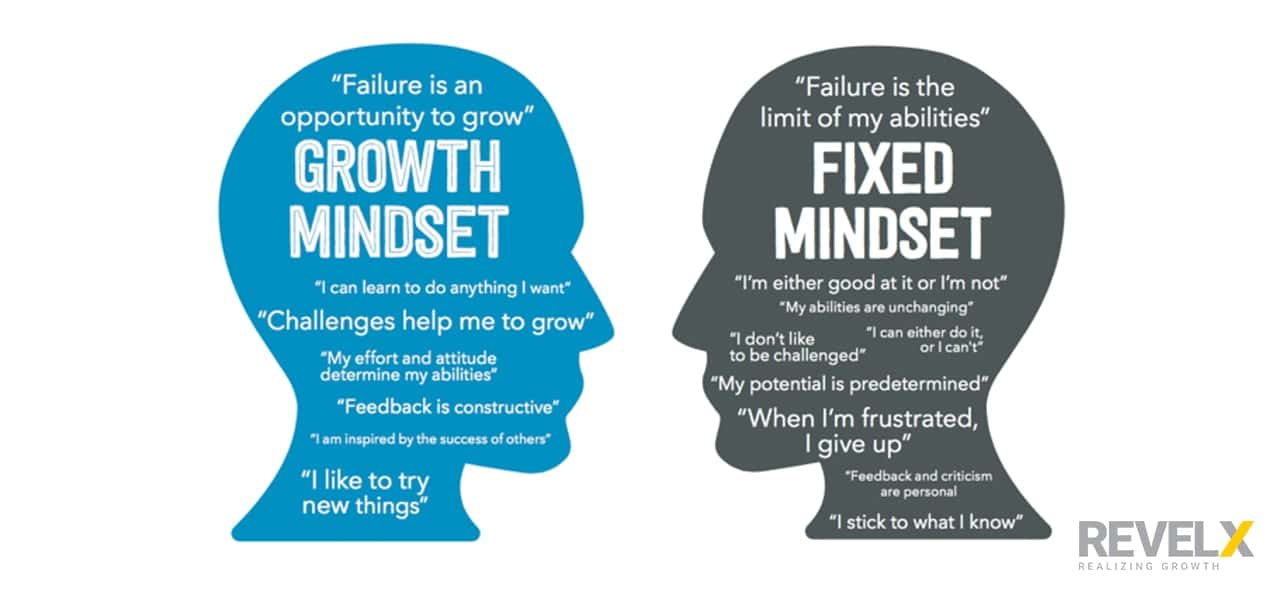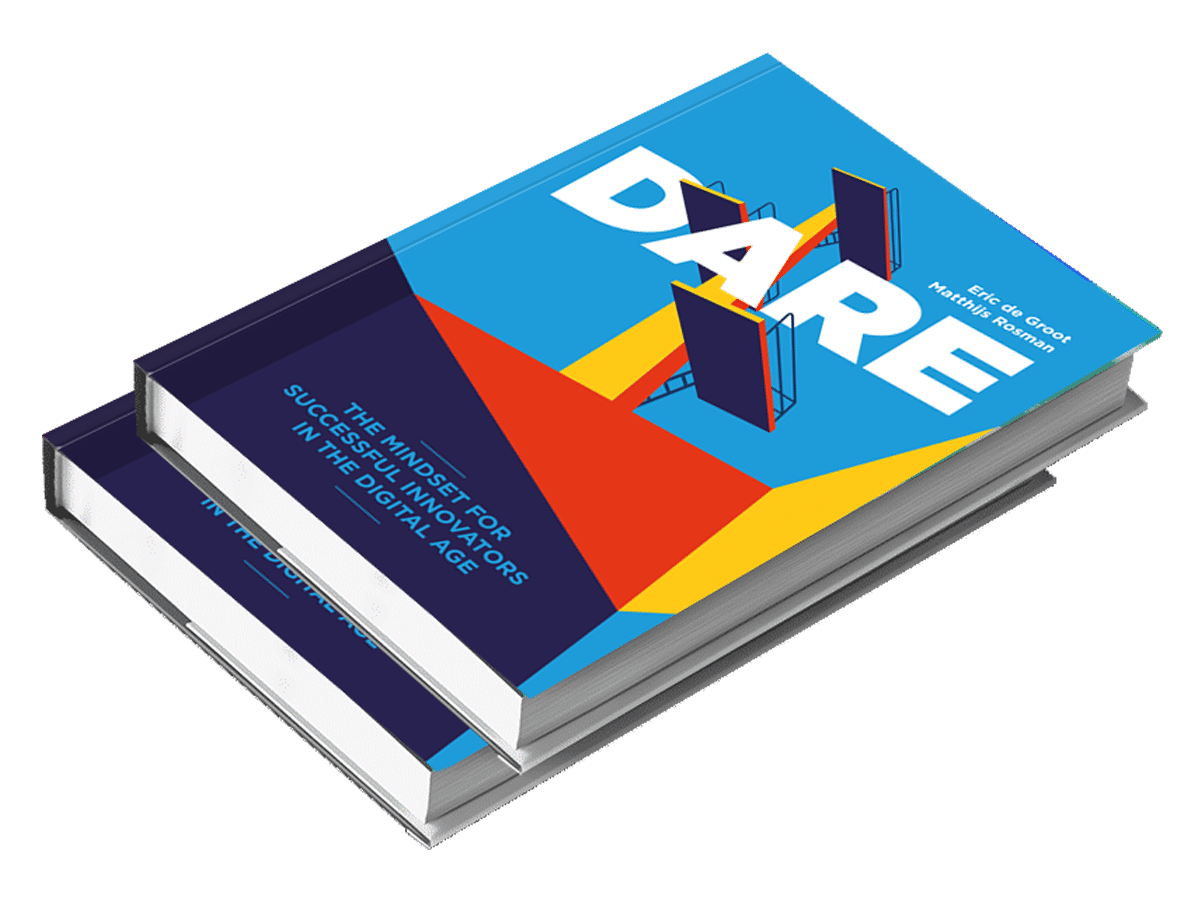Our last post dealt with the last part of the DARE growth mindset, endurance. Now some of our readers asked us what the origins were that led up to the four key connected elements of DARE. Most of our findings that came together in the DARE mindset originated from the great minds of some famous scholars in the field of psychology and neurology. The scientists that study our brains and minds. Let us share some of those insights.
Thinking fast and slow
Daniel Kahneman, the Nobel-Prize-winning psychologist and bestselling author of Thinking Fast and Slow, describes two primary modes of thinking to process information and make decisions. The first mode, or ‘System 1,’ as Daniel calls it, is the fast one. System 1 is intuitive, instant, (often) unconscious, automatic and emotional. Unfortunately, it is at the same time the system that often prevails over the slower one, system 2. System 1 thinkers take their information at face value and are strongly opiniated. They usually think that they are right. Their opinion is based on their truth and what they believe are indisputable facts, which are often nothing more than gut feel and experiences and biases. System 2, on the other hand, is slow, rational, conscious, reflective and reasoning. It is based on deep thinking. System 2 thinkers look at the whole chain of effects, impacts and outcomes. They tend to have a more holistic view and approach towards solving problems. This kind of thinking requires more effort and patience. The basis is often asking rarely asked questions, repeatedly asking ‘why?’ Remember the rarely asked questions I told you about in my first blog on the DARE mindset.
For simplicity reasons we have divided the two systems into two persons. This is of course not correct. One finds both modes of thinking in one person. However, today’s managers of corporates often find themselves under the pressure of societal and business change, in system 1 mode. They tend to rely more on what we call the confirmation bias. They seek opinions, knowledge, data and truths that only confirm their existing views. They heavily rely on their limited heuristics, the mental shortcuts that ease the cognitive load of decision making. The rules of thumb, educated guesses, intuitive judgements or ‘common sense.’ Heuristics and biases can make it difficult to see or hear alternative solutions or come up with new ideas. The irony is that heuristics and biases tend to draw on experiences of the past. It is exactly those experiences that are often not applicable anymore in today’s and tomorrow’s complex and digital society. The same managers also tend to be alone. Hardly anybody dares to challenge them anymore in their way of thinking and decision making. Colleagues consider it a lost battle upfront. It is lonely at the top.
Growth mindset vs fixed mindset
Carol Dweck, professor psychology at Stanford University, did extensive research into the growth mindset. Her work from the late 80s was originally focused on school children but, as it turned out, could also easily be applied to adults. Dr. Dweck concluded that humans either have a growth mindset or a fixed mindset. The growth variant means that you believe that your talents aren’t fixed, but fluid, constantly in development. Growth mindset people are permanently improving their intelligence and ability to learn new skills, through hard work, training and perseverance. They believe that learning doesn’t stop the moment you leave school or university. They accept and even welcome failure to move forward. The benefits of this mindset are substantial. It makes relationships between people much better, working as a team with the knowledge they must learn together. It reduces quick judgments, thrives on constructive criticism and involves less stress. Fixed mindsets have the tendency to go where the least resistance is expected. They tackle the easy stuff first.
People with a growth mindset, however, focus their attention on the hardest parts first. They also tend to see the bigger picture, the end goal, and do not get knocked off their feet by (individual) setbacks or failures. Carol’s work helped us in defining the core elements of our own growth mindset, the open mindedness, the embracing of challenges and the drive to tackle the big ‘leap of faith’ questions first, without leaning too much on the System 1. A growth mindset is imperative in a world where uncertainty is the new normal, where your past experiences and knowledge are less reliable guides for growth.

Growth mindset as a survival tool
How do you survive in a world where profound uncertainty is not a fling but a feature? In order to stay alive and be a serious contender you need to have a lot of mental flexibility. You will have to almost continuously let go of the past, of what you knew best, and learn to be familiar with the unknown.
Speaking of survival, another great inspiration on growth mindset for us is Viktor Frankl, an Austrian neurologist and psychiatrist. Viktor Frankl wrote a book called Man’s Search for Meaning, in which he shared his experiences as a prisoner in the Nazi concentration camps during World War II. Frankl reminds us of the importance of mindset as we make our way through life. The meaning of life is found in every moment of living. We cannot control the world around us, but we can control our attitude. Whether a situation is good or bad simply depends on how we ‘see’ it. Frankl shows that with a positive mindset you can find all the evidence around you that you are on the right path. The power of the right mindset even gets you through the toughest of situations and provides you with the endurance needed to survive. Frankl called his psychotherapeutic method ‘logotherapy.’ At the time of his death in 1997, Man’s Search for Meaning had sold more than ten million copies and was translated into 24 languages.
This is our last post on the meaning of DARE. As stated earlier we put most of our thinking and experiences in our latest book with the same name. We would love to hear your opinions after reading the book. Also, we are currently interviewing for our next book; the sequel to DARE. If you want to share your innovation war stories, please drop us a line at eric@revelx.nl or matthijs.rosman@revelx.nl.

Introducing DARE: The Mindset for Successful Innovators in The Digital Age
Learn how successful innovators and business leaders realize growth with DARE – now Amazon’s #1 best-selling title!
Eric de Groot
Boardroom strategist with unparalleled creative brainpower. Always focused on growth. Creates speed by combining business modeling with inventive pragmatic solutions. Invests in involvement over a sustained period.
Related posts
Strategies to counter disruption or to become a disrupter yourself
We see the same things happening in the business world.…
January 7, 2021
Early warning signals for disruption
Any industry can be disrupted. Netflix is a famous example.…
December 15, 2020
The Great Reset: Disrupt Or Be Disrupted
We live in times of unprecedented change. In order to cope…
December 3, 2020



